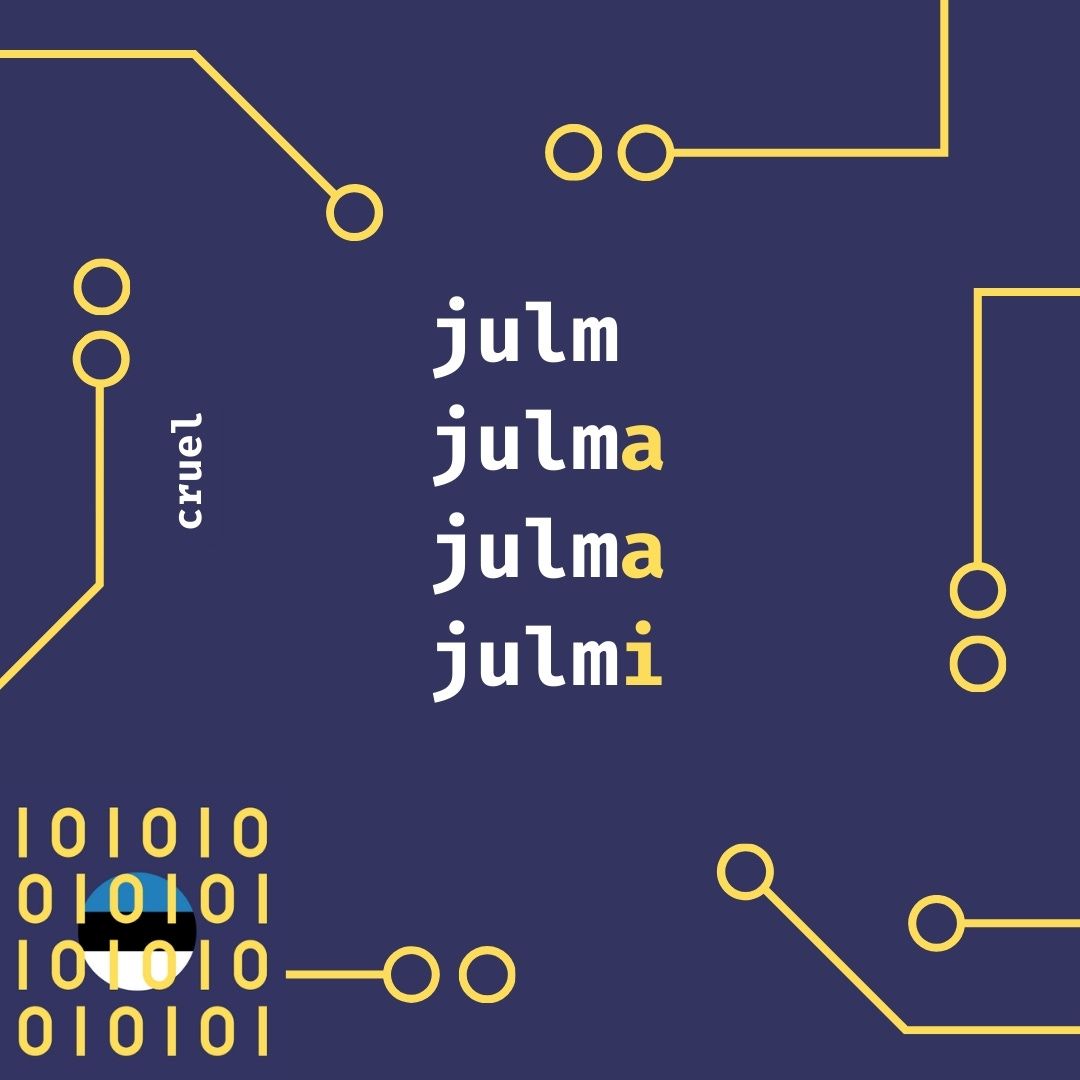Vocab: julm
cruel
cruel, merciless, one who enjoys hurting others and likes to cause suffering
Building blocks
“Julm” is borrowed from Finnish julma (cruel, heartless, merciless). The etymology is uncertain, but a “Julm" is likely related to the Proto-Finno-Ugric root *yulma, which meant "strength, power, pressure, violence."
The adjective has several derivatives in Estonian, such as "julmus" (cruelty), "julmavõitu" (somewhat cruel), and "julmalt" (cruelly).
How to use it:
Describing a cruel act:
“See oli julm tegu.” (That was a cruel act.)
Describing harsh treatment:
“Ta sai julma kohtlemise osaliseks.” (He was subjected to cruel treatment.)
Discussing a harsh reality:
“Elu võib mõnikord olla julm.” (Life can be cruel sometimes.)
Describing a brutal person:
“Ta on tõeliselt julm inimene.” (He is a truly cruel person.)
Depicting a merciless decision:
“Otsus oli äärmiselt julm.” (The decision was extremely cruel.)
Example
Loomariik peab kohanema julma elukeskkonnaga
Literally: “Animal kingdom must adapt cruel environment-with”
Idiomatically: “The animal kingdom must adapt to a cruel environment.”
Loomariik - Noun - Nominative Sg, "Animal kingdom"
peab - Verb - 3P Present Sg, "must"
kohanema - Verb - ma-infinitive, "to adapt"
julma - Adjective - Genitive Sg, "cruel"
elukeskkonnaga - Noun - Comitative Sg, "environment-with"

